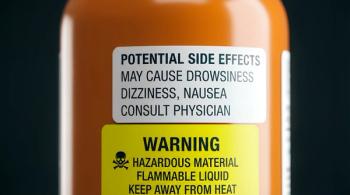
CDC Urges Dialysis Facilities to Enhance HCV Prevention Procedures
Over the past 2 years, about 36 cases of acute hepatitis C virus infection were reported at 19 different hemodialysis clinics.
Treatment of the hepatitis C virus (HCV) had an extraordinary 2015 overall, and 2016 began with news of another drug approval.
The FDA last week
But the news hasn’t been all positive. Costs of the medication regimen continue to prove troubling for states, the Federal Government, and private insurers alike. While a full course of the new drug combination will cost about one-third less than Gilead’s blockbusters Sovaldi and Harvoni, it will still cost more than $50,000 for a 12-week regimen.
Now, the Centers for Disease Control and Prevention (CDC) is urging dialysis providers to assess and improve infection control practices, in part because the agency has received an increased number of reports of newly acquired HCV infection among patients undergoing hemodialysis.
Any case of new HCV infection in a patient undergoing hemodialysis should prompt immediate action, the CDC reiterated, pointing practitioners to a
Over the past 2 years, CDC said it has been contacted about 36 cases of acute hepatitis C virus infection in 19 different hemodialysis clinics across eight states. Investigations are still ongoing, but in many cases, the agency has found a direct link between the infection and hemodialysis based on epidemiologic and viral sequencing evidence.
The agency found lapses in infection control at these facilities, including injection safety issues, environmental disinfection issues and a common enemy at healthcare facilities: hand hygiene.
CDC is underscoring the processes facilities should be following to prevent infection, including:
- Adherence to infection control practices
- Regular assessments of procedures
- Identifying any gaps in assessments
- Screening all dialysis patients for HCV
- Halting secondary transmissions, and
- Promptly reporting all acute HCV infections to the state or local health department.
For those patients with a positive anti-HCV test result, the test should be followed with a Nucleic Acid Test (NAT) for HCV RNA. Facilities should follow CDC recommendations for interpretation of test results and further actions and ensure that patients identified to have HCV infection are aware of the diagnosis and are referred to appropriate care and evaluation.
Newsletter
Stay informed on drug updates, treatment guidelines, and pharmacy practice trends—subscribe to Pharmacy Times for weekly clinical insights.

































